Safe to say a lucky few authors will do very well from Kindle Vella, and Amazon will make a big push to ensure they do. For the rest, it’s guessing game right now.
While KDP has stood the test of time, and A-Pub is a powerful force in digital and POD reading, Audible and CreateSpace (as KDP Print once was known) were prêt-à-porter buyouts with all the heavy lifting done by others. Unlike KDP and A-Pub, some of Amazon’s publishing initiatives have fallen by the wayside over the years.
And the early signs are that Amazon’s latest venture into the publishing arena, Kindle Vella, will make no more impact than Kindle Worlds or Kindle Scout, both innovative and full of promise, but neither given the attention to detail needed to make a meaningful ROI for Amazon.
One comes to expect, when Amazon launches something new, that it is kept quiet until most of the kinks are ironed out in contractually-secret behind the scenes trial with carefully chosen authors, and only when the product is reasonably polished will regular authors and the buying public learn about it.
Not so this time, where Amazon has made a vague promise of more details “in months to come”, meanwhile inviting authors to start publishing content through their KDP accounts immediately, which presumably will be curated by Amazon and when enough content of acceptable standard accumulate there will be a public push to get readers engaged.
Of course the latter is what makes this potentially exciting for both authors and for Amazon, which can at a stroke push the new consumer opportunity out to countless millions of Amazon users.
Which begs the question why this sloppy soft-launch whereby readers get to hear about something that will be accessible at some time in the future, and content providers are asked to submit product on the same basis, with as yet no clear indication of how much money may be on the table for those lucky enough to get noticed.
Authors are promised 50% value of however many “tokens” are spent to access the author’s works – works here being “episodes” that can range from 600 to 5,000 words.
Per one example promo, accessing two episodes will cost 140 tokens, or $1.99. 7 episodes will set you back 368 tokens that will cost you $4.99. while $9.99 will get you 770 tokens and access to around 15 episodes.
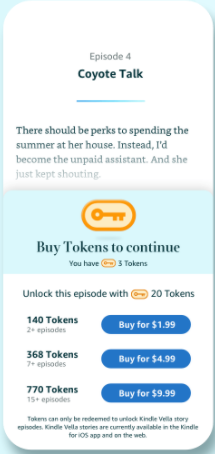
No, hold on. In the next breath Amazon is telling is $1.99 will get us 200 tokens, $4.99 will get us 525 tokens and $9.99 will get us 1,100 tokens.
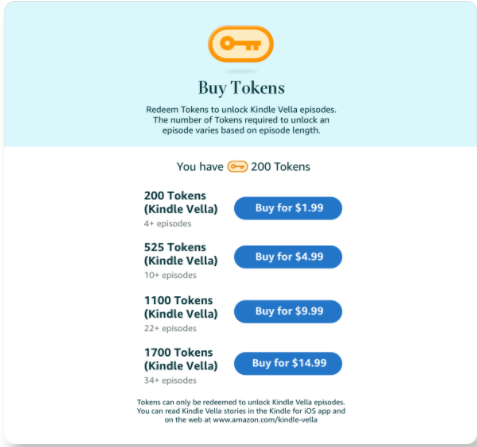
So while Amazon tells us it works out at one token per 100 words, for authors trying to work out their prospective earnings we should be clear that the token price to consumers will depend on what Jeff Bezos had for breakfast that morning, and the two different examples on show today may have no bearing on reality come launch.
At which point, let’s look more closely at the value for money to the consumer based on one of the example promo prices.
15 x 5,000 word episodes will be 75,000 words, about novel length. $9.99 for a novel? Readers would be better off buying 2 full length A-Pub ebooks which will have had the full editorial treatment.
368 tokens, which will cost you 4.99 will get you 7 episodes. About 1 A-Pub title at 4.99.
But Amazon is accepting episodes as short as 600 words. That’s just 6 tokens per episode. $1.99 will get you 140 tokens per one example as above. or 1,400 words. For the same price you can pick up a full length quality indie ebook.
The only reason to pay this sort of money for mobile reading is if serialised fiction can be made really appealing.
And that brings us to the bigger question of just how many KDP authors will be able to write quality serialised fiction?
We only need to look at Wattpad to know that for every successful author attracting millions of reads there are countless authors who have no idea about writing serialised content, and countless more who may be good at it but just don’t get noticed.
How Amazon proposes to curate and promote content is anyone’s guess right now, so why launch the project in this way, where neither readers nor authors have any real clue how this will look in real life?
Per the title of this post, this seems rushed, and just maybe it is, and the project has been hurriedly brought forward to act as a spoiler to China Literature’s planned move on the North American markets (meaning US and Canada), where it has announced intent to clock up 100,000 North American authors this year.
Only US authors can write for Kindle Vella.
Per the Kindle Vella promo, this has been in preparation since 2020 – one of the promo shots shows an October 2020 date – and another dated image shows January 2021.
Authors need to be aware their first three episodes of every story will be free to consumers. So for a 75,000 word novel in fifteen 5,000 word episodes the author will only get paid for 60,000 words which will cost the reader 600 tokens. The author will get revenue from 300 tokens which per one example Amazon promo will be worth 4.99. Not a disastrous payout, but as above, these promo token prices now may be very different when the launch comes around.
Safe to say a lucky few authors will do very well from Kindle Vella, and Amazon will make a big push to ensure they do. For the rest, it’s guessing game right now.
The big attraction for indie authors will be being able to load-up their works through the familiar and friendly KDP interface without having to set up an account and share bank details with a “foreign” outfit like China Literature’s Webnovel.
And presumably the payouts that do accumulate will be paid through KDP along with the other revenue the author accumulates with no nonsensical thresholds. Webnovel has a worryingly unappetising $200 threshold before payout, which will deter all but the bravest of authors.
But taking a step back to wind up this post, this latest initiative by Amazon is just one more ripple across the western publishing industry’s complacency pond, as most publishers studiously avoid talking about online literature.
Right now this looks like nothing more than a spoiler and an experimental dabble for Amazon, and there’s little sign Amazon has seriously thought this through. My guess is this will go the way of Kindle Worlds and Kindle Scout a few years down the line.
But, Amazon is Amazon. It has the deep pockets to get very serious with this if – although it looks unlikely any time soon – the eastern online reading players start to make serious inroads into western markets.

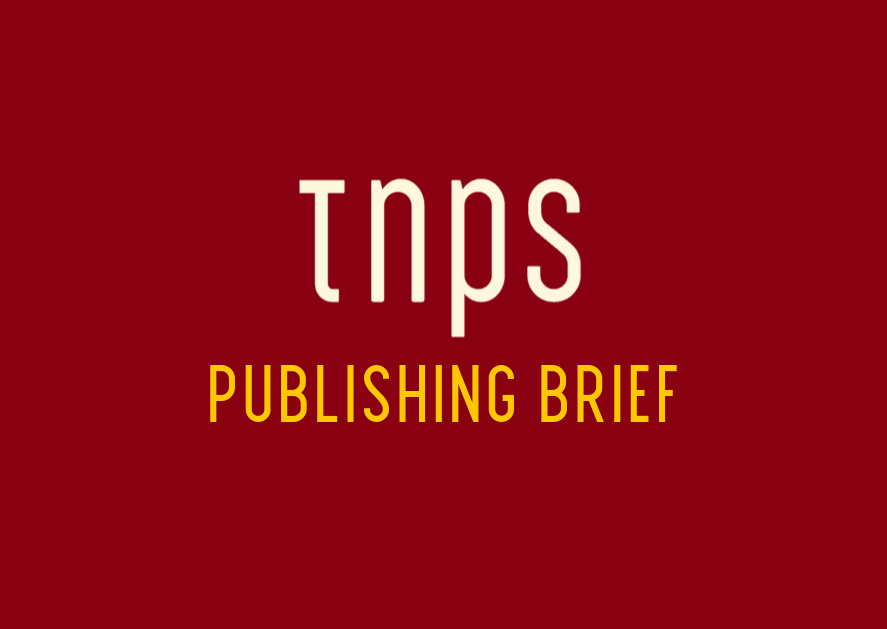


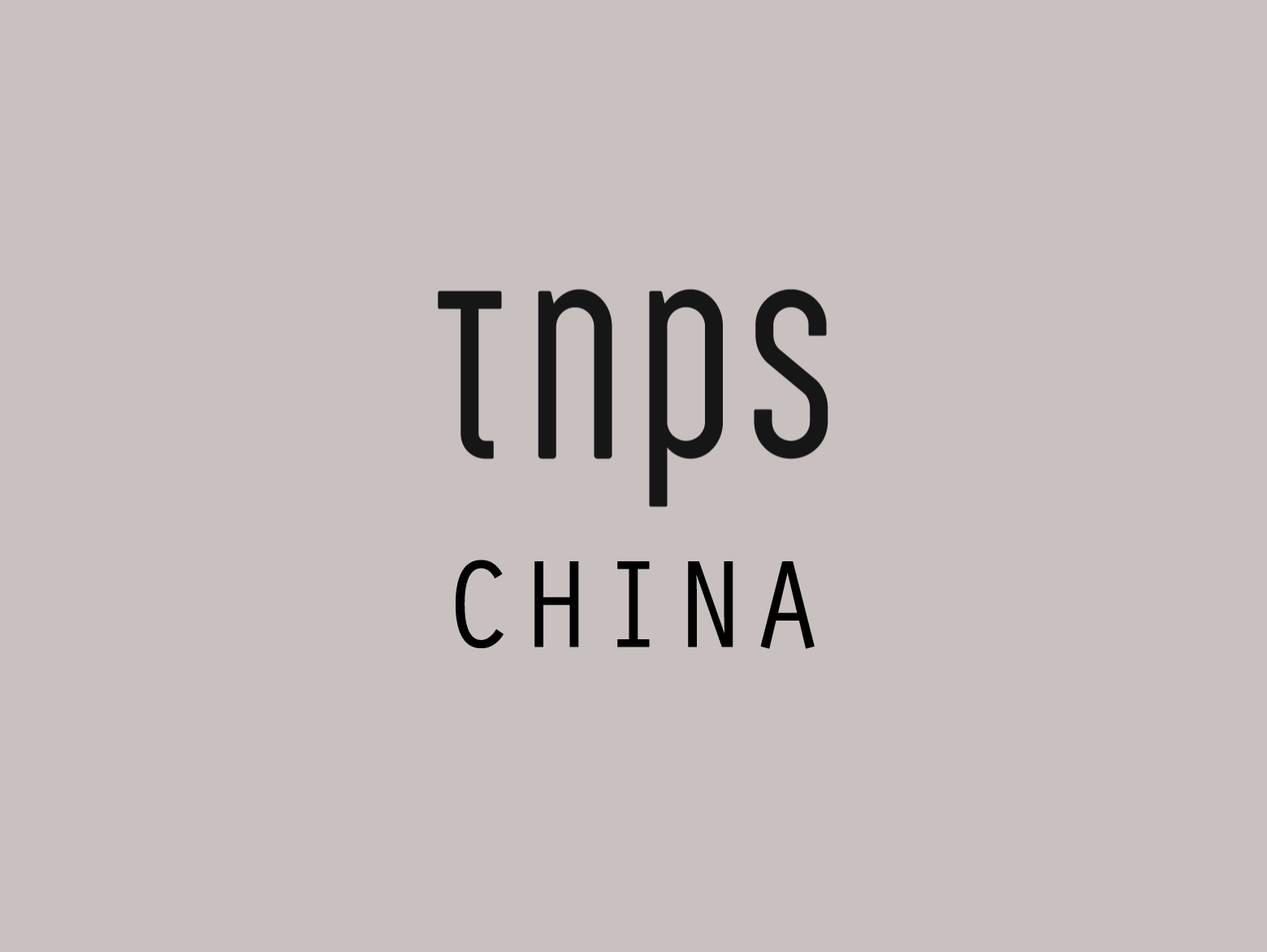
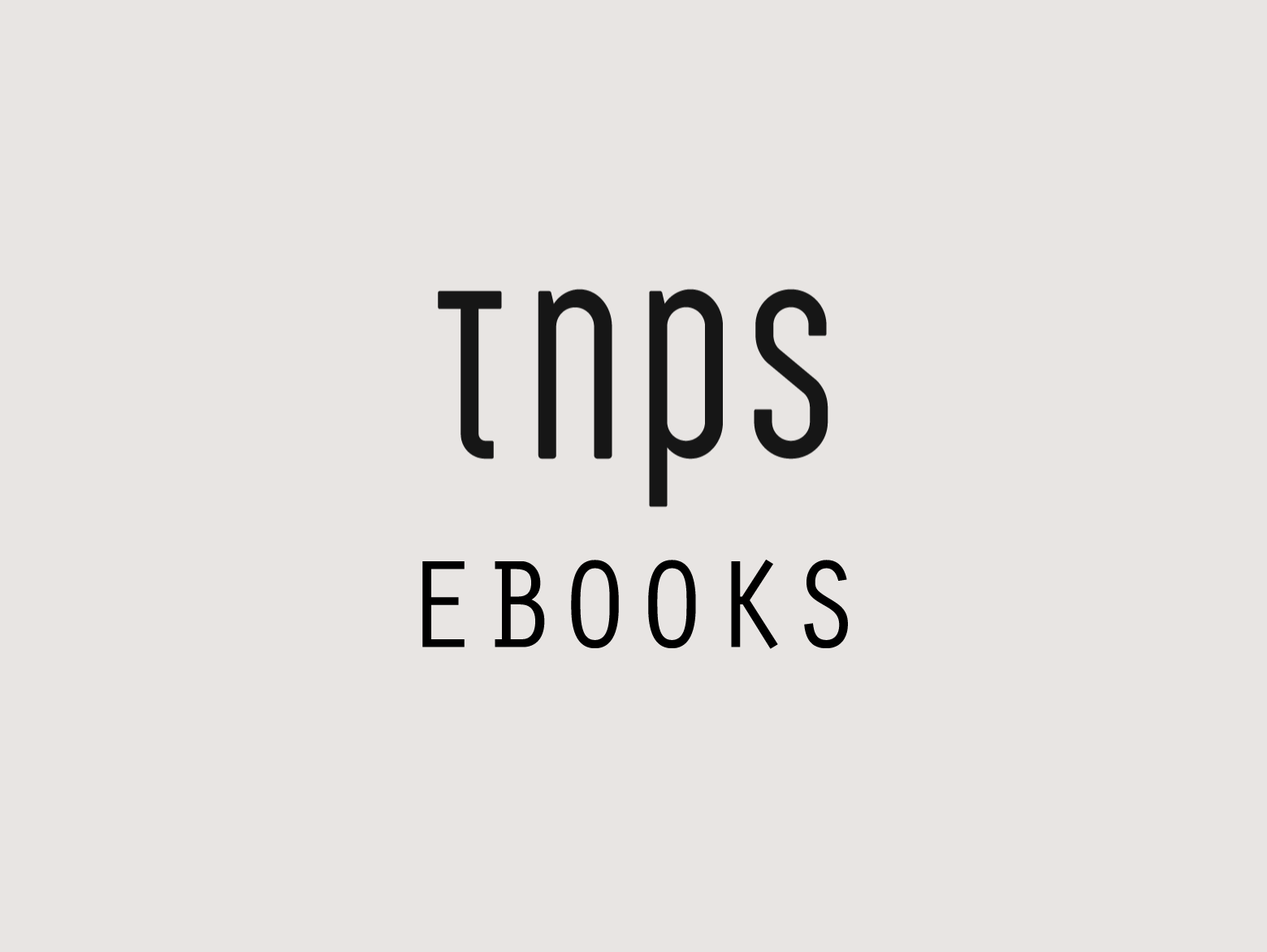
I think you’ve missed one thing. Amazon has likely been working on this for a while, but come to the realisation that it had to act now. In the months preceding this early announcement, there was a huge shift in the web fiction field. Kakao Entertainment purchased Radish for $440 million, and performed a hostile takeover of another web fiction platform, Tapas for $510 million. Kakao also operates Daum, a webcomic platform. Wattpad has recently been bought out by their competitor, Naver Corp (also operator of Webtoon). Amazon wants in on the pie and it was about to be cut out if it didn’t do something.